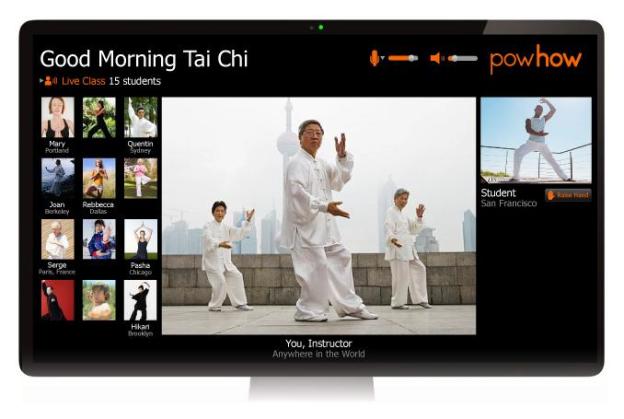 The business of being an expert has always been good, but the Web is making it better. Constant, instant connectivity means that the best of the best are an Internet connection away. Video technology has gotten good enough (and so pervasive) that we are all learners and teachers and all we have to do is use what’s been given to us.
The business of being an expert has always been good, but the Web is making it better. Constant, instant connectivity means that the best of the best are an Internet connection away. Video technology has gotten good enough (and so pervasive) that we are all learners and teachers and all we have to do is use what’s been given to us.
So why aren’t we? That’s what the Powhow team asked before launching their online marketplace for experts and students. While throwing the idea around, founder Viva Chu and co-founder (and wife) Agatha Chang assumed someone else was already doing this – and they were fortunately wrong.
“It’s like when Amazon got started… before that, how many people were buying things online?” explains Chu. “Or like OpenTable or Yelp, which put people in contact with the service industry like they hadn’t been before. What we’re saying is there are many services we can make more efficient for experts so they can extend their reach and create a global clientele base.”
Prior to Powhow, Chu worked for Google after his company Handipoints was sold to Slide, which in turn was acquired by Google. After a year there, his startup spirit took over and, as he says, it “was a matter of time” before he went off on his own. The idea for Powhow started when his then-fiance Chang was taking fitness classes via Skype. “I was working in the smart TV market, and we saw a connection there… it kind of emerged out of that.”
“When we started thinking about this, I thought ‘I swear this has been done before.’ But when you really start digging in… it hasn’t. There was this big immediate opportunity to do it on the Web initially.”
Powhow is free for experts (the system works much like Etsy: Powhow takes a revenue share when they sell a seat but it’s free to set up with no monthly minimums), who have a suite of enterprise tools at their disposal to create and price classes, manage payments and promotions, and host how-to lessons for students via Webcam. The back-end software is incredibly simple and easy to manage, keeping the focus on the lessons themselves.

“There are over 250,000 local teachers in the U.S. alone, and on average they make about $36,000 annually and that’s through their local business,” Chu tells me. “We’re trying to give them a platform to immediately start an online studio.”

Despite what sounds like a crowded market, the depth and variety of this industry means there’s room for experimentation and differing business models. Powhow has had no lack of interested experts. “We’re working with several hundred at the moment, and we have more reaching out to us,” says Chu.
A couple of notable teachers are famed potter Simon Leech and YouTube celebrity makeup artist Tyme. Both have been able to drive significant viewership to their Powhow lessons.
“Our problem right now is trying to work with the best people that we’re finding and we’re experimenting with who is able to drive people to their classes,” says Chu. “It’s a pleasant problem to have. The supply side is there.”


